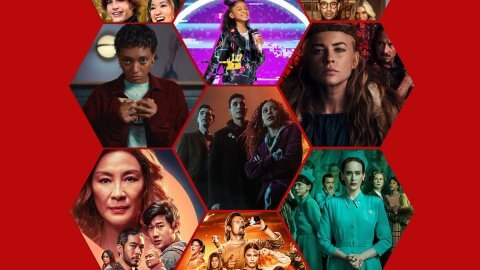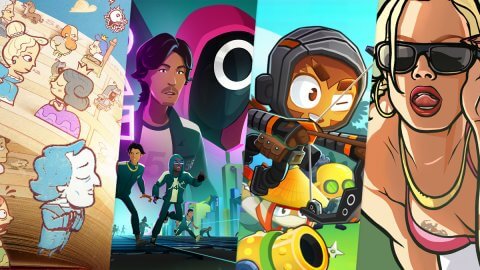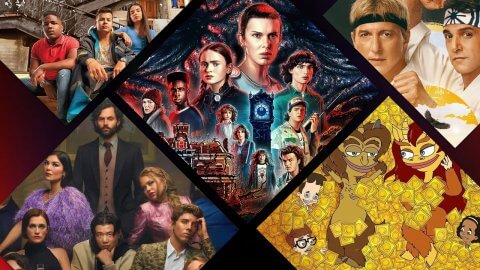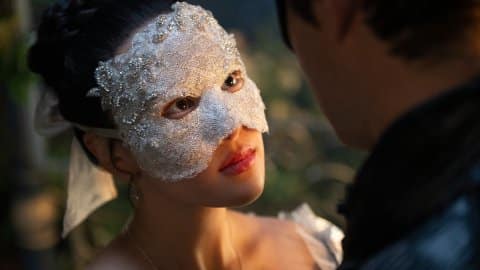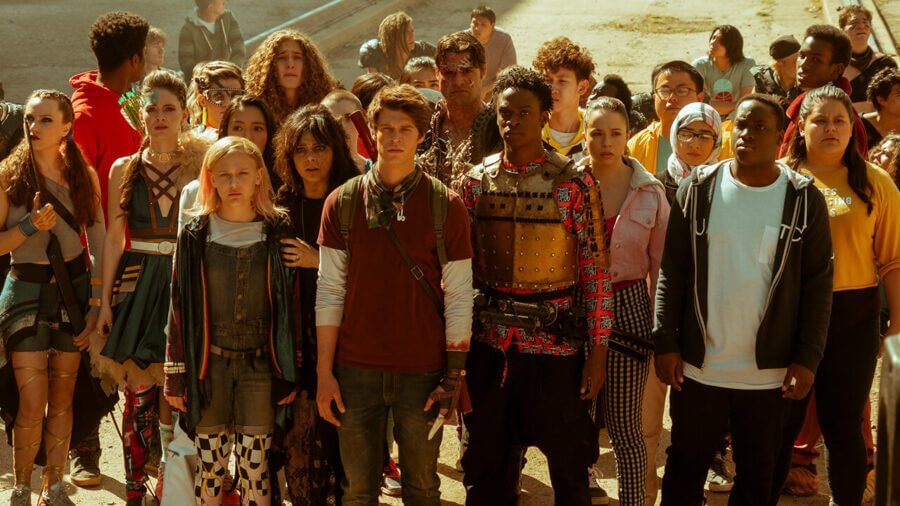
Daybreak – Picture: Netflix
We get an interview with the song producer behind Netflix’s recent teen drama series Daybreak where Bryce Jacobs discusses producing the memorable melodies heard in the Netflix Original series.
Netflix’s recently released series Daybreak follows 17-year-old Canadian high school outcast Josh Wheeler searching for his missing British girlfriend Sam Dean in post-apocalyptic Glendale, California. Joined by a ragtag group of misfits, including a pyromaniac 10-year-old Angelica and Josh’s former high school bully Wesley, now turned pacifist samurai, Josh tries to stay alive amongst the horde of Mad Max-style gangs (evil jocks, cheerleaders turned Amazon warriors), zombie-like creatures called Ghoulies, and everything else this brave new world throws at him.
The series has been labeled Mad Max meets Ferris Bueller’s Day Off, with the show’s killer music being called a “stand out” by both critics and fans. One of the people behind those memorable melodies, song producer Bryce Jacobs. Jacobs is no stranger to the music world, he has contributed music to Syfy’s 12 Monkeys, NBC’s Chicago Fire, Freeform’s Cloak & Dagger and many more recognizable titles. Below Jacobs goes more in-depth about his work on Daybreak.
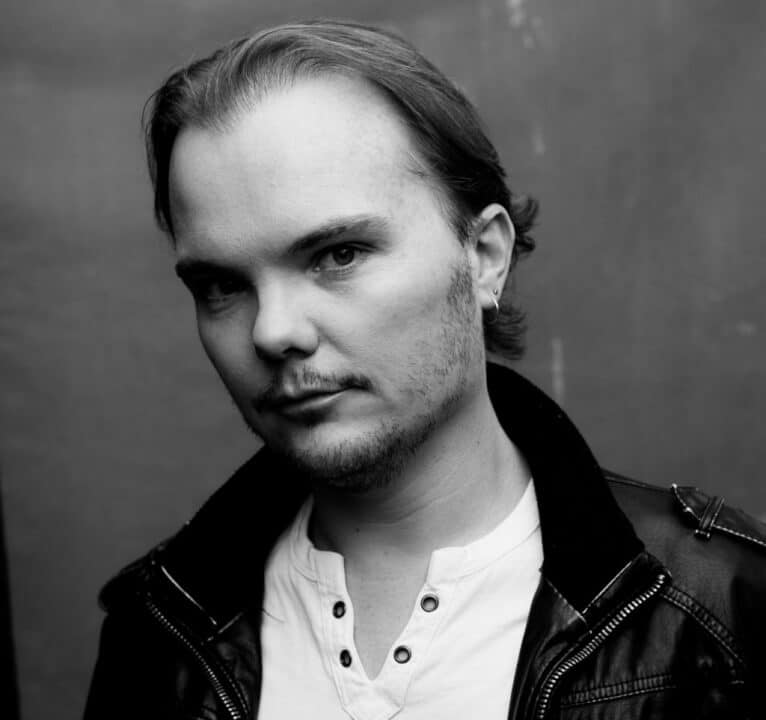
Bryce Jacobs – Picture provided by Bryce Jacobs
How did you become involved with Daybreak?
My friend and colleague, Andrea Von Foerster, worked as Music Supervisor for Daybreak. Andrea gave me a call and told me that the show needed a music producer for the onscreen songs that would occur throughout the season. Since they are performed onscreen and feature particular members of the cast, these songs were by default an essential part of the story. Although I wear many hats in my composer and musician world, I LOVE music producing, so I was very excited about the idea of getting involved with such a unique and amazing series.
Your official title from Daybreak was Song Producer. Can you tell readers what exactly that entails?
It was definitely a bit of a unique task here. Alongside the action and drama, there are these American Idol vs. American Ninja moments where different characters get up on stage and sing for their lives. If they’re good, they live – if not, a trapdoor opens and they have to battle the “Ghoulies”. If they escape the Ghoulies, then they’re killed anyway. So in this dystopian future, it’s as if one band has survived, and the main characters perform with them in this gladiatorial type context where they either get the thumbs up or the thumbs down. I had to create and craft a sound for the band reflective of the world they now exist in.
We heard that you deliberately tapped into the kind of instruments that the characters would have access to in the dystopian environment of Daybreak. Can you go into this further and discuss what those were?
Firstly, I had to represent what the band members would be playing on stage. The lineup was 2 guitarists, a bass player, and a drummer. These instruments themselves had to sound a little rough around the edges – so nothing suave, sophisticated or smooth about them. But behind the curtain, I was supporting the lineup with some sonic escapades via other instruments. I would bolster the sound with a wall of guitars that all had their own personality of tone, but you would perceive that wall onstage as the two guitarists, unaware that their sound is made up of a variety of textures. For ambiance, I used a pedal steel to help add extra depth, just a slight cinematic edge without it being obvious in any way. I blended a Mini Moog with the bass guitar to thicken up the low end… which at times allowed the bass guitar to go a little rawer and support the guitars with extra grittiness. There’s even Guitar Viol that is hidden in the guitar textures for an extra layer of rawness. All this intended to complement the rustic uniqueness of the world they exist in, yet still have a fullness you would hope for in a show as epic as this.
The song choices were quite contrasting; from 80’s Pop to 90’s Grunge; syrupy love songs to post New Wave crooning type tracks. By giving the band its own personality, they could “own” the songs as opposed to just playing them as straight-up covers. In this way, many of the challenges solved themselves. If you have a band that has its own character of color and texture, the band is not tied down to any of the styles that the individual songs are borne of. Imagine the band Tool performing Sinatra, Beatles or Carole King. Their sound has perceivably nothing to do with the genres these artists worked in, yet Tool could really own the personality of any version they invested in – even if they tapped into their own influences such as King Crimson, it would still be in the firm universe of Tool.
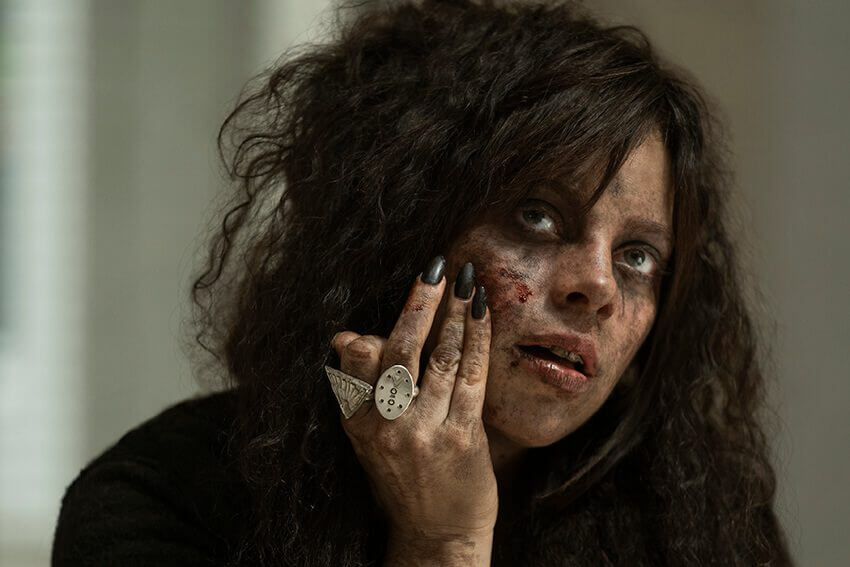
DAYBREAK – Picture: Netflix
How has Daybreak been different from your other projects, such as 12 Monkeys and Cloak & Dagger?
The instrument/ensemble pallet is much larger with the epic scoring type stuff. Especially with 12 Monkeys, there was full orchestra as well as synths, percussion, guitars and ethnic instruments. With smaller instrumentation, it gets closer to the record producer world. Just say you choose 3 instruments to carry a piece of music, then those 3 instruments need to be well chosen and well-considered to generate a sound and personality that communicates the diversity of emotion; a soundscape and texture that will really engage an audience in all the right ways. I often marvel at how John Williams can take you on the most epic journeys through an orchestra, but can absolutely devastate you with a single violin.
Cloak & Dagger was a funny one for me. Not only was I part of the scoring team, but I also had a song called “Voices in the Water” licensed for a very poignant moment in one of the episodes. It was really interesting to be on both sides of the fence for that one.
Was there a song you wanted for Daybreak that didn’t make it in the final cut?
I think all the songs that were discussed at the outset were included in the final product (thanks to Andrea’s expertise at securing seemingly impossible licenses!). I could have obviously kept going and going – I really love producing and spend a lot of time in that world outside of this particular show. I do a lot of songwriting and cinematic reinvention of existing tracks. It’s all about storytelling for me and I find starting with the lyrics is paramount.
If you’re inviting people into a story or emotion as opposed to just telling it, then I find it becomes something more engaging, more enticing, and hopefully invites a listener to let their own imagination grow out of what a song has suggested. I love the idea of being invited in as opposed to taking part in a beginning, middle and end.
I think that ignites diversity of imagination since you have a window into a world that you only know so much about. My favorite composer is Debussy and my favorite orchestral piece is “Prelude to the Afternoon of a Faun”. I love that Debussy creates an ever-evolving, vibrant world where you feel you are daydreaming along with the faun and not just watching him float off on his own tangent.
This is your first streaming show for Netflix, was your musical approach any different to this project than non-streaming projects?
One of the coolest things about streaming is that you do all the episodes at once and then release them as a complete season. It feels like more of a consolidated approach and in this way you have less chance of being derailed from a vision that you have worked so hard in bringing to life. There is SO much content in the streaming world, so you’re not really tied to a given M.O. or timeslot. It means that a greater diversity can be invested in that will more than likely find a dedicated audience that will commit to the ride.
What was your favorite part about working on the show?
So many things! I loved working with the actors; I loved going on tangents with the producing to see what might reveal itself; I loved playing the instruments in a way that I felt was channeling each member of the band. I even sang on a couple of the tracks myself, specifically, lead vocals for an off-camera song for a party scene as well as backing vocals throughout the rest. In recent years, I’ve been drawn further into the music-producing world. I find that my experiences as a composer, a musician, and even during my days as an orchestrator and being a part of various bands, all come together when I have my producer hat on. Just another blessing of what I’m fortunate enough to do for a living!
You can learn more about Bryce at https://www.brycejacobs.com/.

